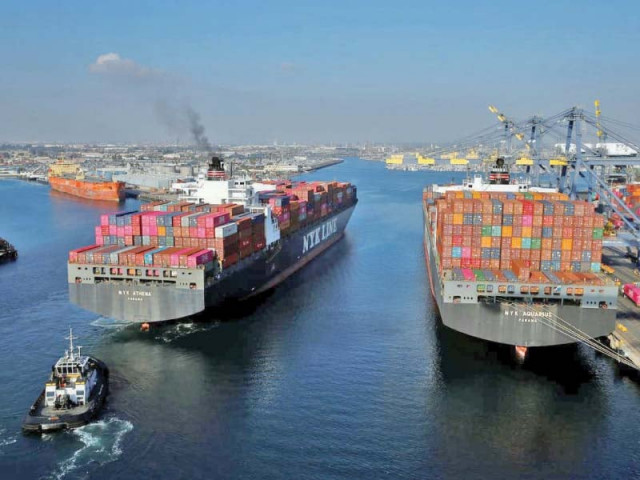New tariff policy focuses on export, industrial growth
Will remove anomalies in tariff structure, provide duty-free access to inputs

The policy will provide time-bound strategic protection to the domestic industry during the infancy phase and will also promote competitive import substitution. PHOTO: FILE
“The policy has been developed by the Commerce Division after extensive consultations with the stakeholders,” said the Commerce Division in a statement.
Prime Minister Imran Khan, in his remarks during the cabinet meeting, said the import tariffs had been traditionally employed as a revenue generation tool, which increased reliance on such tariffs for revenue collection.
However, in accordance with the reform agenda of the government, the economic policy paradigm was now being realigned to set tariffs for industrial development, he said.
Gas firms seek tariff hike of up to Rs194 per unit
Adviser to Prime Minister on Commerce and Industry Abdul Razak Dawood stated that the tariff policy marked a watershed in the country’s economic policymaking since it would energise export growth, lead to rapid industrialisation and import substitution through predictability in the tariff framework.
According to the Commerce Division, the National Tariff Policy is aimed at removing anomalies in the tariff structure and making it a reflection of trade policy priorities and enhancement of competitiveness through duty-free access to imported raw material and promotion of investment in efficient industries through a predictable tariff structure.
The policy is based on the principles of employing tariffs as an instrument of trade policy rather than revenue generation and maintaining vertical consistency through cascading tariff structures (increasing the tariff with stages of processing of a product).
The policy will also provide time-bound strategic protection to the domestic industry during the infancy phase and also promote competitive import substitution through time-bound protection, which will be phased out to make the industry eventually competitive for export-oriented production.
China, US kick off new round of tariffs in trade war
The guidelines contained in the tariff policy provide that tariff slabs will be simplified based on the principle of cascading - tariffs on raw material, intermediate and capital goods will be gradually reduced and additional customs duty and regulatory duties will also be gradually slashed. Under the policy, the difference in rates of tariff for the commercial importers and industrial users of raw material, intermediate and capital goods will be eliminated to provide a level playing field for small and medium enterprises (SMEs) through competitive access to essential raw material. The nascent industry will also be provided with time-bound protection, which will cover the payback period.
The policy will be implemented by the Tariff Policy Board, chaired by the adviser to the prime minister on commerce with the minister of industries and production, finance secretary, revenue secretary, Federal Board of Revenue chairman, commerce secretary, Board of Investment secretary and National Tariff Commission chairman as its members.
A tariff policy centre will be created in the Ministry of Commerce, which will serve as the secretariat of the Tariff Policy Board.
Published in The Express Tribune, November 20th, 2019.
Like Business on Facebook, follow @TribuneBiz on Twitter to stay informed and join in the conversation.



















COMMENTS
Comments are moderated and generally will be posted if they are on-topic and not abusive.
For more information, please see our Comments FAQ